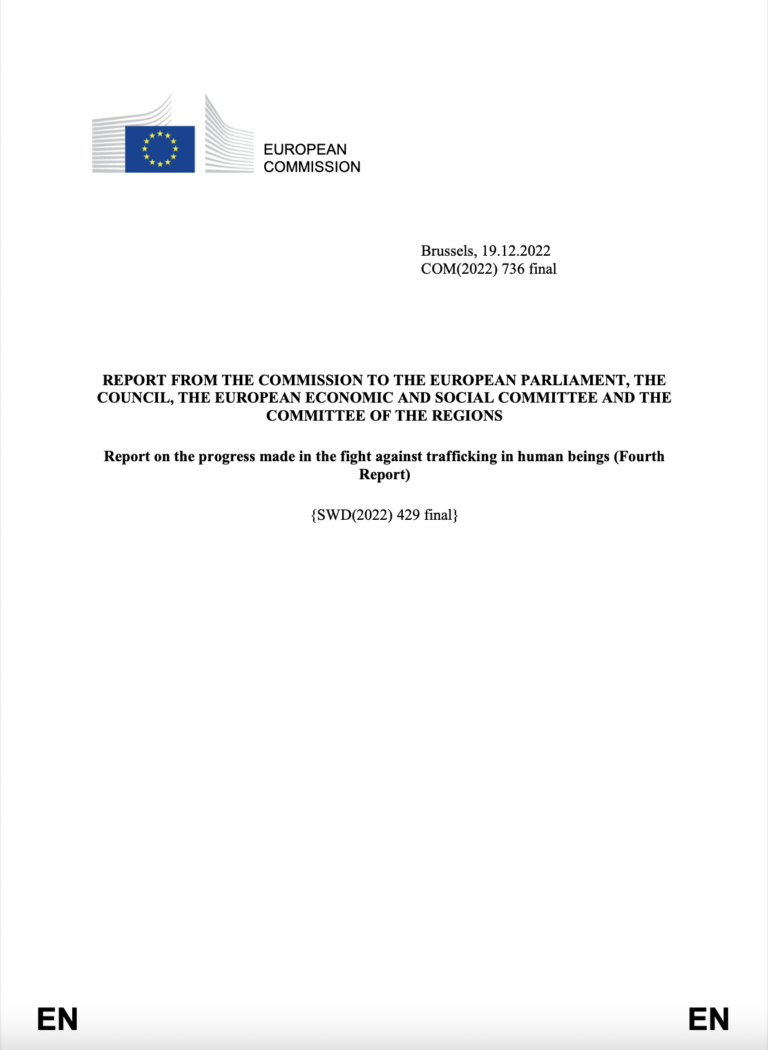Trafficking in human beings is a serious crime and a grave violation of fundamental rights. Combatting it is a priority for the European Union1. Article 20 of Directive 2011/36/EU2 foresees a two-yearly report on the progress made in the fight against trafficking in human beings. Despite progress made over the past years, the threat remains high. Recent major crises, in particular the Covid-19 pandemic and Russia’s aggression against Ukraine, have further exacerbated people’s vulnerability to being exploited.
According to the EU Serious Organised Crime Threat Assessment 20213 (EU SOCTA 2021), trafficking in human beings is a core activity of serious and organised crime in the EU and is set to remain a threat for the foreseeable future. Measures have been taken at the EU level and by Member States in order to prevent the crime, reduce demand that fosters trafficking in human beings; break the business model of traffickers; protect and support the victims; as well as address the international dimension.
This report takes into consideration:
- The contributions submitted by all Member States through the EU Network of National Rapporteurs and Equivalent Mechanisms (NREM);
- The contributions from members of the EU Civil Society Platform against trafficking in human beings;
- The contributions from nine EU Agencies4;
- Reports and other documents from EU Agencies, EU institutions andInternational Organisations.More specifically, the report i) identifies key patterns and challenges in addressing trafficking in human beings, ii) outlines the main anti-trafficking actions from 2019 to 2022 and iii) provides an analysis of statistics for the period of 2019-2020, which is included in a Staff Working Document5. The data included in the report and in the Staff Working Document was gathered by EUROSTAT from all the Member States via the national statistical authorities.

